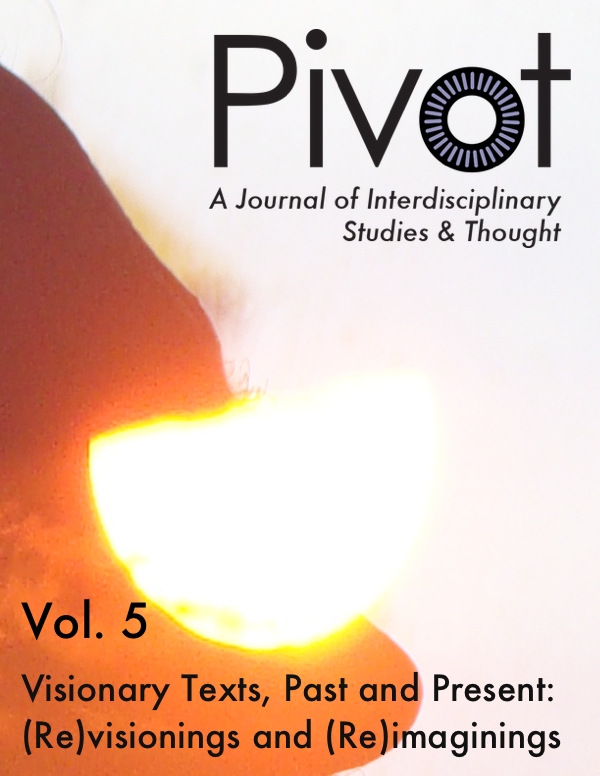“I cannot act!”: Fanny’s “Inaction” in the Economic Ideology Driving Mansfield Park
DOI:
https://doi.org/10.25071/2369-7326.40253Abstract
In early 19th century British culture, an ideology founded on economics permeates one of society’s most private affairs marriage between two individuals. In Jane Austen’s Mansfield Park, the characters become a type of currency to be exchanged through marriage in order for others to gain power and wealth. Fanny Price, subjected to this objectification, comes to realize the inherent value that she possesses as a woman. Once she is given agency in the novel, she is able to live beyond the ideology of the novel. Her marriage allows her to recognize herself as being equal to her husband, Edmund Bertram, and join him in ownership of their property. Fanny and Edmund represent a new ideology that is founded on love and equality, rather than profit value.
References
Austen, Jane. Mansfield Park. 1814. Oxford: Oxford UP, 2008. Print. https://doi.org/10.1093/oseo/instance.00080851
Cleere, Eileen. "Reinvesting Nieces: Mansfield Park and the Economics of Endogomy." Novel 28.2 (1995): 113-130. Print. https://doi.org/10.2307/1345507
Easton, Fraser. "The Political Economy of Mansfield Park: Fanny Price and the Atlantic Working Class." Textual Practice 12.3 (1998): 459. Print. https://doi.org/10.1080/09502369808582319
Graeber, David. Debt: The First 5,000 Years. Brooklyn: Melville House, 2011. Print.
Harding, D.W. "Regulated Hatred: An Aspect of the Work of Jane Austen." Scrutiny (1940): 346-362. Print.
McDonnell, Jane. "'A Little Spirit of Independence': Sexual Politics and the Bildungsroman in Mansfield Park." NOVEL: A Forum on Fiction 17.3 (1984): 197-214. Print. https://doi.org/10.2307/1345747
Menon, Patricia. "The Mentor-Lover in Mansfield Park: 'At Once Both Tragedy and Comedy.'" The Cambridge Quarterly 29.2 (2000): 145-164. Print. https://doi.org/10.1093/camqtly/29.2.145
Michie, Elsie B. "Austen's Powers: Engaging with Adam Smith in Debates about Wealth and Virtue." NOVEL: A Forum on Fiction 34.1 (2000): 5-27. Print. https://doi.org/10.2307/1346137
Said, Edward W. Culture and Imperialism. New York: Knopf, 1993. Print.
Van Ghent, Dorothy. The English Novel: Form and Function. New York: Harper Collins, 1953. Print.
Wainwright, Valerie. "On Being Un/Reasonable: Mansfield Park and the Limits of Persuasion." English: The Journal Of The English Association 53.3 (2004): 93-116. Print. https://doi.org/10.1093/english/53.206.93


